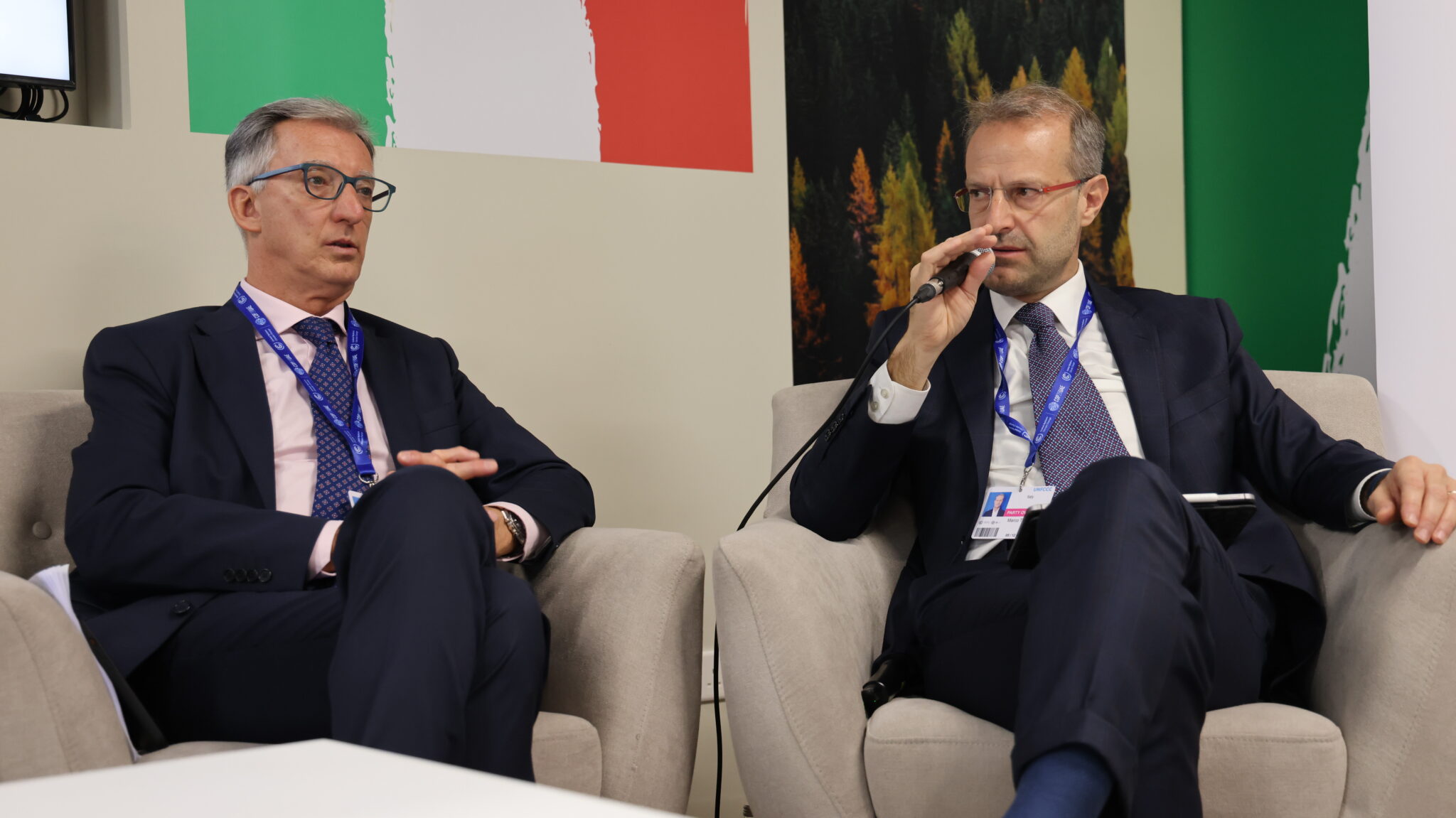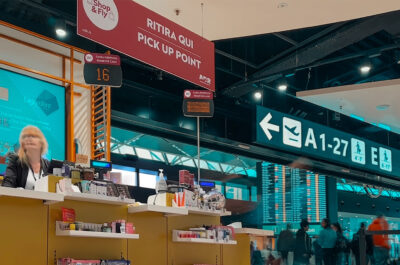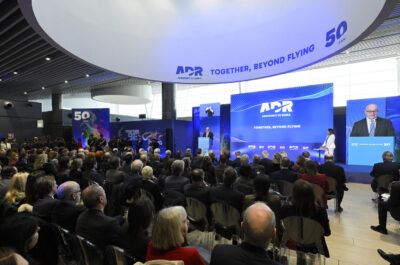
The context is the annual meeting of the signatory countries to the UN Framework Convention on Climate Change, an international event open to all the delegations of the Countries involved, experts, scientists, representatives of business and non-governmental organisations.
DUBAI – In the context of the United Nations Climate Change Conference (COP28) currently taking place in Dubai, Aeroporti di Roma and Eni organised the side event “The Pact for the decarbonisation of air transport: the Italian ecosystem for a roadmap to Net-Zero”, at the Italian Pavilion.
Selected among many applicants by the Ministry of the Environment and Energy Security, the side event dedicated to the Pact for the Decarbonisation of Air Transport (i.e., the observatory promoted by Aeroporti di Roma under the patronage of MIT, MASE and ENAC that brings together industrial players, institutional stakeholders and associations to promote the achievement of sustainability targets in the sector) represents an international best practice to address the challenge of decarbonisation.
In such an internationally relevant context, The Pact for the Decarbonisation of Air Transport – which currently includes around thirty representatives of institutions, companies and associations of national and international importance – has the unique opportunity to present the solutions outlined so far to achieve the climate neutrality objectives of the air transport industry, mainly involving: the encouragement of investments through measures to reduce emissions, such as the use of sustainable fuels; research into new technologies for aircraft propulsion; the development of intermodality. Continuous dialogue between the private sector and institutions has also revealed the need to define a stable regulatory framework with a multi-year horizon that safeguards the competitiveness of a sector that is crucial for the country’s economic development.
The side event was attended by Costantino Fiorillo, Director General of the Ministry of Infrastructures and Transports, Vannia Gava, Deputy Minister for the Environment and Energy Security, Francesco Corvaro, the Special Envoy for Climate Change at COP28, Pierluigi di Palma, Chairman of ENAC, Andrea Benassi, General Manager of ITA Airways, Olivier Jankovec, General Manager of ACI Europe, Angela Natale, President of Boeing Italy, Alessandra Priante, Director for Europe at the United Nations World Tourism Organisation, Alessio Quaranta, General Manager of ENAC, Giuseppe Ricci, Eni’s Energy Evolution Chief Operating Officer, Marco Troncone, CEO of Aeroporti di Roma. It was moderated by Veronica Pamio Vice President External Relations & Sustainability at Aeroporti di Roma.
“We feel the strong responsibility to implement concrete solutions to achieve the objective ofclimate neutrality in our sector,” Marco Troncone, CEO of Aeroporti di Roma, said. “As promoters of the Pact, we are reacting in a credible and concrete way to the expectations that the transition imposes. The latest answers emerging from the Pact’s working tables are very encouraging, establishing the industrial feasibility of reaching the 6% share of SAF by 2030 – the year by which Europe has established that this percentage must be used – thanks to the contribution of national players.
By then, also, the main airports will have reached the NetZero goal, contributing to the achievement of sector targets. After two years of joint work with the supply chain extended to the large Italian industrial players, the opportunity to bring to global attention the positive Italian example of the Pact for the Decarbonisation of Air Transport does not solely marks a great result, but also represents the last appointment before the formal start of the activities of the Pact’s Foundation, a vehicle and collective work through which the entire sector will be represented externally.”
“Although they constitute only 3% of overall CO2 emissions, the emissions coming from the aviation sector grew by 35% between 2000 and 2019 due to the strong increase in air transport, and demand for aviation fuel is expected to it will double between 2022 and 2050; all this makes the role of air transport, which is defined as hard to abate (HTA), crucial,” declared Giuseppe Ricci, Eni’s Energy Evolution Chief Operating Officer. “Sustainable aviation fuels (SAF) are key to the decarbonisation of this sector. The estimate of the overall demand for SAF in Italy is around 500,000 tonnes by 2030, and the production plans of Eni biorefineries through HEFA technology will be able to satisfy it – but our strategy is to increase production following the growing demand globally. We have been producing and marketing SAF since 2022, will produce over 300,000 tonnes per year from 2025 and over 1 million from 2030. We have also developed a distinctive vertical integration model for the production of vegetable oil to feed our biorefineries, which focuses on innovative technological and agricultural solutions, exploiting synergies with our traditional activities in the countries where we operate.”
Theodore is the Co-Founder and Managing Editor of TravelDailyNews Media Network; his responsibilities include business development and planning for TravelDailyNews long-term opportunities.










































































































































































































